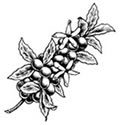Coffee Labelling

LABELLING
U.S. labelling regulations specify that a package must contain 100% pure coffee. If a package does not contain 100% pure coffee the regulations state that the label must specify the other ingredient/s. Therefore, a manufacturer of a New Orleans style blend of coffee and chicory must specify that the package contains chicory and state what percentage of the blend it constitutes.
These labelling regulations apply to the entire coffee industry in America. The question that we ask is "How effective are these labelling regulations when applied to the Specialty Coffee Industry?" So let us look at that.
What happens when a retailer sells a pound of coffee labelled Jamaica Blue Mountain coffee to a customer for $40.00 but the bag instead of containing sixteen ounces of Jamaica Blue Mountain coffee actually contains two ounces of Jamaica Blue Mountain coffee and fourteen ounces of Brazilian coffee? Legally, the labelling regulations have been met for the bag does in fact contain sixteen ounces of 100% pure coffee. However, as a pound of Brazilian coffee might cost $12.00 per pound and a pound of Jamaica Blue Mountain coffee typically costs $50.00 per pound, or more, two things happen. The consumer is duped and the reputation of one of the world's premier coffees has been seriously damaged.
Most coffee producing countries are developing nations which depend in some measure on coffee export earnings for sustaining their economies and for supporting their socio-economic advancement. For this reason export coffee worldwide falls under statutory regulations. These statutory institutions range from the giant I.B.C. in Brazil to the Coffee Boards found in the former British colonies such as Kenya and Jamaica.
Because Jamaican coffee fetches the highest prices in the world it is particularly vulnerable to fraud. When unscrupulous vendors "water down" Jamaica Blue Mountain coffee by blending it with a cheap coffee, then sell the blend as Jamaica Blue Mountain at the top prices that straight, un-blended, Jamaica Blue Mountain coffee commands -- the reputation of the coffee is seriously damaged.
J. Martinez & Company guarantees customers that we will not blend our premium coffees and this guarantee is printed on our packaging.
John Martinez has been calling for stricter labelling regulations for a long time.
In November 1991 his address, as a guest speaker at the 5th International Sintercafe Conference in Costa Rica, called for stricter labelling regulations. (Sintercafe is a prestigious forum for both producers and buyers hosted by Costa Rica's respected national coffee authority, the Instituto del Cafe.)
Growers in Hawaii took up the banner and lobbied the State legislature for labelling regulations to protect Hawaii's world renowned Kona coffee. In January 1992 the Hawaiian Legislature passed a law requiring that a package of coffee labelled Hawaiian Kona must contain 10% Kona beans in order to use the name Kona. Previously there were no minimum requirements. Unfortunately the Hawaiian regulation is not enforceable on the mainland.


